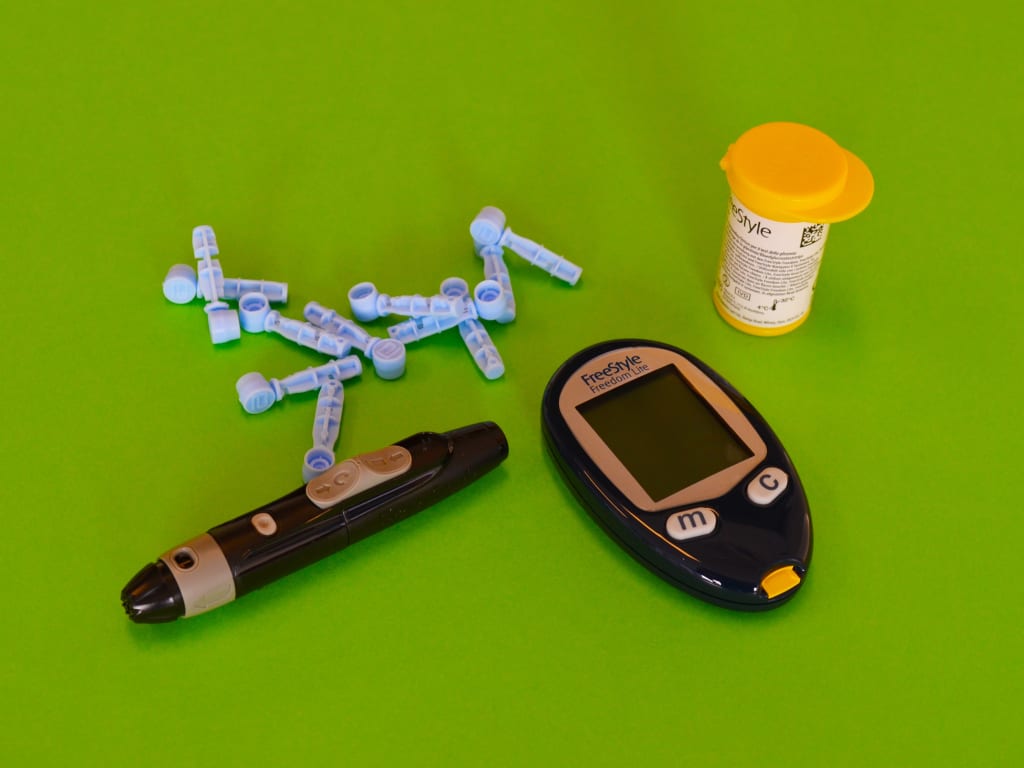5 misconceptions about diabetes, hurry to understand, do not get it wrong again
Diabetes Knowledge Popularization

Diabetes is a group of metabolic diseases characterized by hyperglycemia, which is caused by defective insulin secretion and/or utilization. It is a multi-morbid and common disease, including four types of diabetes, type 1 diabetes, type 2 diabetes, gestational diabetes, and special types of diabetes. At present, the prevalence and incidence of diabetes are increasing dramatically worldwide, and the prevalence of diabetes in China is also showing a rapid growth trend, but since the diagnosis rate of diabetic patients in China is only 30% to 40%, that is, only 3 to 4 out of 10 diabetic patients know they have diabetes. Therefore, the popularization of diabetes is urgent! This time I will bring a few common misconceptions about diabetes.
Misconception 1: Is diabetes necessarily hereditary?
Not necessarily! Diabetes does have a genetic component, and studies have shown that genetic factors play an important role in the development of type 1 diabetes, and the development of type 2 diabetes is also associated with genetic factors. We often find that diabetes runs in families, mainly because family members share the same poor diet and work habits. However, the genetic background only gives the individual a certain degree of susceptibility to the disease, but is not sufficient to cause the disease, and requires a combination of external factors to cause the disease.
Myth 2: Only the elderly get diabetes?
This is also very wrong! Diabetes is divided into four types, of which type 2 diabetes is the most common, often occurring in middle-aged and elderly people, accounting for about 95% of diabetics, but type 1 diabetes is common in young children and adolescents, although the proportion is small, but not only middle-aged and elderly people will get diabetes, adolescents also have the risk of the disease.
Myth 3: If you eat less sugar, you won't get diabetes.
Xiao Zhang loves to eat sweet things, and she is always teased that she loves sugar so much, so be careful of getting diabetes! So if you eat less sugar, you won't get diabetes? This statement is certainly not true! There is no direct relationship between eating sugar and diabetes, eating more sugar does not necessarily lead to diabetes, and eating less sugar does not necessarily lead to diabetes. The onset of diabetes is related to many factors such as genetic factors, diet, lack of exercise, obesity, smoking, and alcohol abuse. If the pancreatic islet function is good, the intake of more sugar can be used effectively. So there is no direct relationship between eating sugar and diabetes.
Misconception 4: If you have diabetes, you can't eat sweets and fruits.
Some people give up all sweets and fruits once they are diagnosed with diabetes, but, under the premise of the reasonable control of total calories and balanced nutrition, no one food is forbidden for diabetic patients, as long as the total calories are well controlled, they can eat some fruits appropriately, and they can be eaten as additional meals between meals, giving priority to fruits with the low glycemic index, such as apples, kiwis, peaches, dragon fruit, etc.
Myth 5: If you have diabetes, you won't live long.
Not necessarily! Although diabetes is a lifelong disease with many complications, as long as people with diabetes are actively treated, try to control their symptoms, prevent acute complications, prevent chronic complications, and actively control their diet, people with diabetes can also live a normal life.
At present, China has become a veritable "blood sugar country", stabilizing blood sugar is urgent! In recent years, with the change in people's lifestyles and the acceleration of the aging process, the number of people with diabetes is increasing worldwide! Some studies show that the undiagnosed rate of diabetes in China is as high as 60%, and the awareness rate, treatment rate, and control rate are not optimistic, so we still need to improve the public's awareness of diabetes prevention through active and effective health education. To prevent and treat diabetes, the most crucial thing is to raise the awareness of the whole society about diabetes, so that people can understand diabetes, reduce misunderstanding and prevent it scientifically!






Comments
There are no comments for this story
Be the first to respond and start the conversation.